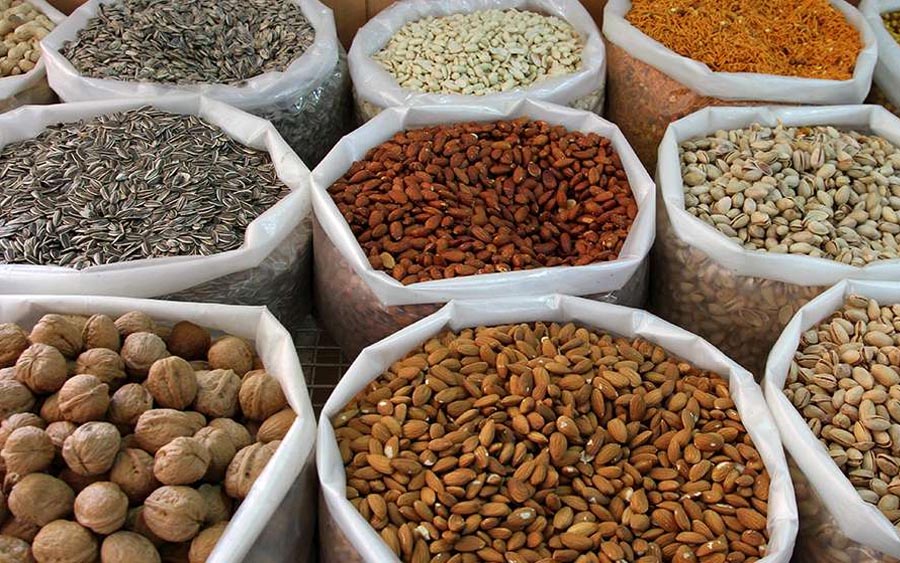Nigeria exported agricultural goods worth N343.4 billion in the first half of the year, an increase of 17.3% from N292.8 billion recorded in the corresponding period of 2021. It is, however, a rise of 61.9% compared to N212.1 billion recorded in the second half of 2021. This is according to a breakdown in the foreign trade report released by the National Bureau of Statistics (NBS).
On the other hand, Nigeria imported agricultural goods worth N907.8 billion in H1 2022. This represents an increase of 11% compared to the N817.52 billion recorded in the corresponding period of 2021, while it declined by 21% from N1.15 trillion recorded in the second half of 2021.
This implies that Nigeria recorded an agricultural negative trade balance of N564.4 billion, indicating that Nigeria continues to deal with recurrent trade deficits in terms of its agricultural trade. This is despite huge investments by the federal government in the Agricultural sector.
Meanwhile, cocoa beans, Sesame seeds, and cashew nuts topped the list of agricultural goods that Nigeria exported during the period, earning Nigerians an aggregate sum of N262.99 billion. Below is a list of the top Nigerian agro exports in the first half of the year.
Cocoa – N114.1 billion
- Nigeria exported cocoa worth N114.1 billion in the first half of the year, accounting for 0.8% of the total exports recorded by Nigeria.
- Cocoa is a small perennial tree crop that primarily comes from the three tropical regions in the world; Southeast Asia, Latin America, and West Africa. Cote d’Ivoire is the single largest producer of cocoa beans, accounting for approximately 31% of the world’s supply.
- The fruit is an egg-shaped red-to-brown pod that contains about 30 to 40 seeds, each of which is surrounded by a bitter-sweet white pulp. When the seeds are dried and fermented, they turn brownish red and are known as cocoa beans, which is the principal ingredient of chocolate.
- A further breakdown of the NBS report showed that Nigeria exported standard quality cocoa worth N18.43 billion in the review period, while superior quality cocoa exports was stated at N95.11 billion.
Sesame seeds – N81.5 billion
- Sesame seeds export in the review period stood at N81.49 billion, representing 0.6% of Nigeria’s export in the first half of the year. Nigeria has been one of the highest sesame seed-producing countries over the years, making the seed an important component of the country’s agricultural export.
- Sesame seed comes from a flowering plant mostly grown in Northern Nigeria due to the drought-resistant nature of the seed. It has many uses, but perhaps, its most important use is as a source of sesame oil which is the most demanded vegetable oil in the world because of its zero-cholesterol content.
- It is also worth noting that Nigeria exported sesame oil and its fraction worth N638 million in the same period under review.
Cashew nuts – N67.39 billion
- Nigeria earned a sum of N67.39 billion from the exportation of cashew nuts between January and June 2022. It accounted for 0.5% of the total export recorded by the African giant.
- Cashew is a tree crop that has been cultivated for food and medicine for many years. The various parts of the cashew fruits are of economic value, which includes apple, nut, and kernel. The primary product of cashew nuts is the kernel, which is the edible portion of the nut.
- In confectionery and bakery products, for example, the cashew kernels are used in the production of ice creams, chocolates, cakes, and sweets. Cashew nut shell liquid has also been used in making medicine used for treating various illnesses.
Desiccated Coconuts – N13.86 billion
- Nigerians exported desiccated coconuts worth N13.86 billion, which is 0.1% of the total export value recorded in the same period. Coconut is a cash crop that is grown in 22 of Nigeria’s 36 states and its production is limited to the southwestern part of the country, with Lagos State having the largest production area.
- Coconut serves as a raw material for numerous industries, such as pharmaceuticals, cosmetics and food, and beverages, with limitless domestic and export potential; coconut consumption, however, has continued to rise with the growing population, especially dry coconut which is consumed in the northern part of the country.
Ginger – N12.63 billion
Ginger stands fifth on the list with an export value of N12.63 in the review period, which accounted for 0.1% of 14.51 trillion Recorded. According to FAO and quoted by the Nigerian Export Promotion Council (NEPC), Nigeria accounts for 40% of the global ginger production, producing almost 523,000 metric tonnes annually.
Others include
- Cocoa butter – N8.79 billion
- Frozen foods – N8.11 billion
- Plants – N6.47 billion
- Palm nuts and Kernels – N3.72 billion
- Brazil buts – N2.89 billion
